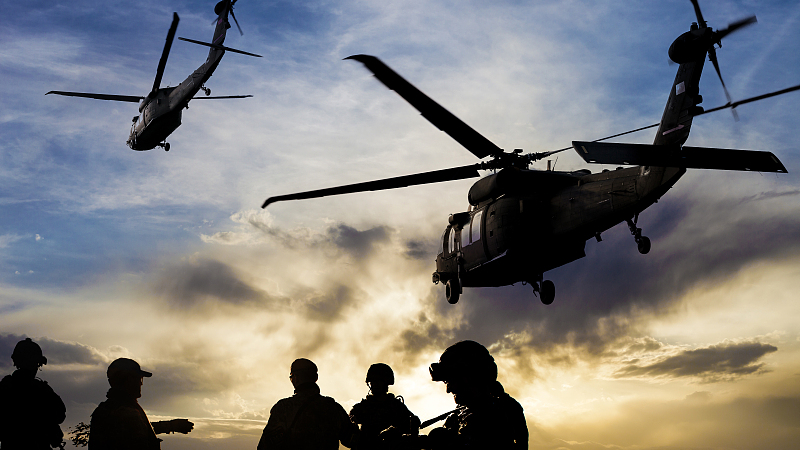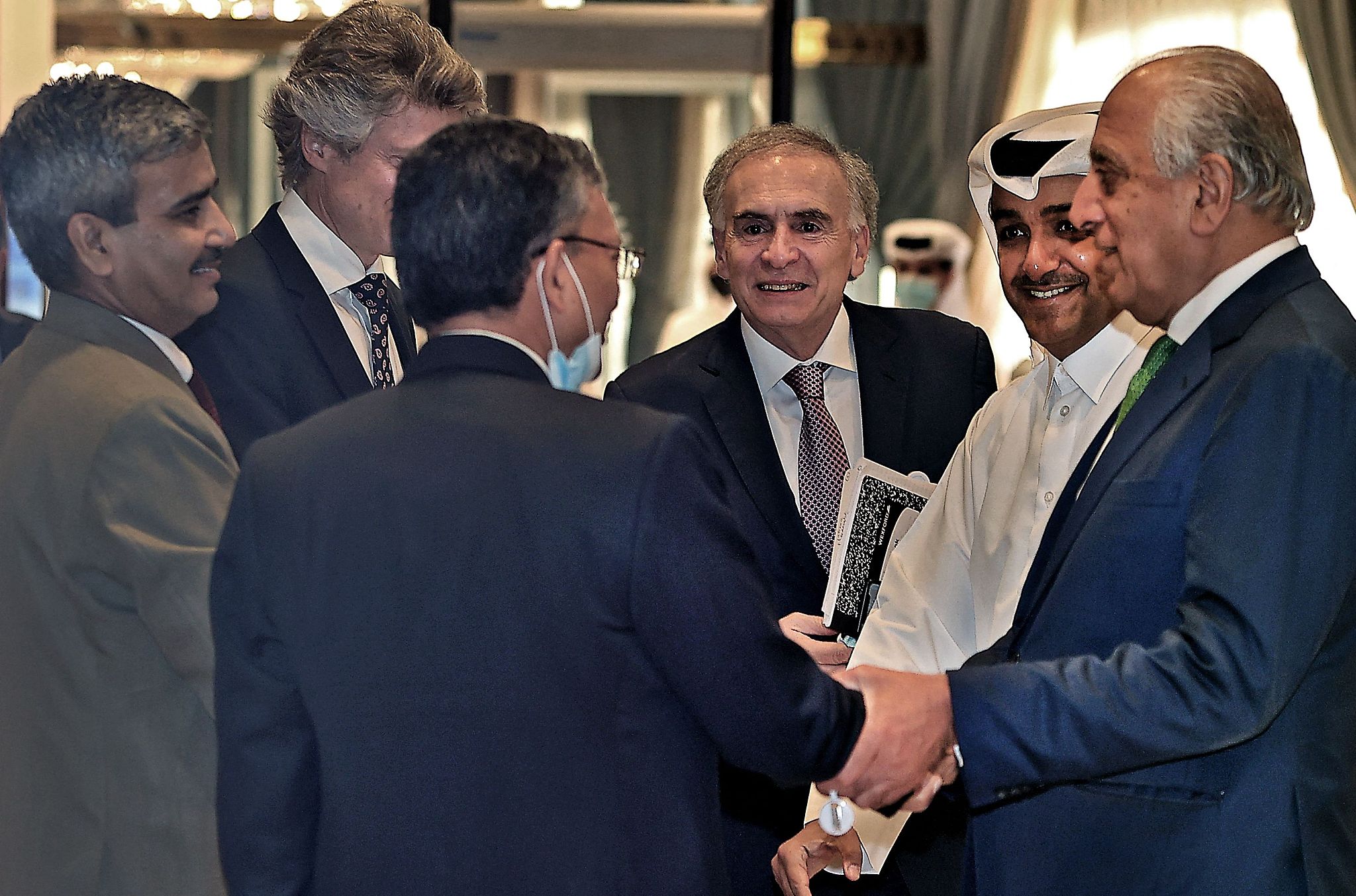
Editor's note: Hamzah Rifaat Hussain is a former visiting fellow at the Stimson Center in Washington and serves as assistant researcher at the Islamabad Policy Research Institute in Pakistan. The article reflects the author's opinions and not necessarily the views of CGTN.
Prior to the Troika Plus nations meeting in Doha to try to chart out an everlasting political solution to the Afghan conflict, the U.S. State Department in a news briefing urged regional players to not recognize an Afghan government that has been imposed by force.
While this is a given, with no regional capital willing to do so, it is equally important to understand that dictations from afar will gain little traction in the region in the post-2021 scenario where there is a broad understanding that Afghanistan's political meltdown is not of the region's own doing but Washington's owns strategic blunders.
As options are explored by each of the four nations – Russia, Pakistan, China and the United States, it is critical for pressure tactics to subside and collective wisdom to take precedence. While spokesperson Ned Price did speak about the participants focusing on a reduction in violence and the implementation of a long-term ceasefire based on multilateral commitments and the role of international institutions in realizing such scenarios, there is a disconnect between U.S. official lines and disclosures from the U.S. media.
Special Representative for Afghanistan Reconciliation Zalmay Khalilzad was considered to advance a collective international response to unfolding security quagmires but a Voice of America interview confirmed that Khalilzad had warned the Afghan Taliban against pursuing a military solution on the ground and that such a government would be recognized as a pariah state.
Now conventional wisdom would suggest that this disconnect will be capitalized upon by the Taliban which already views U.S. involvement in Afghan affairs post-Doha 2020 as a flagrant violation of American commitments for which violence must continue unabated. However, there is more to such disconnects than angering the Taliban.
The Extended Troika is a Moscow-based dialogue initiative solely focused on consultations towards finding a negotiated solution in the absence of violence and such disconnects risk derailing the entire vision shared by each of the members. No stakeholder even with a controversial orientation should be a pressurized back channel, and that too in the absence of mutual consensus from all members.

Representatives from China, the United States, Russia and Pakistan gather in a lobby of a hotel in Qatar's capital Doha, where they discussed the situation in Afghanistan, August 12, 2021. /CFP
Representatives from China, the United States, Russia and Pakistan gather in a lobby of a hotel in Qatar's capital Doha, where they discussed the situation in Afghanistan, August 12, 2021. /CFP
The disagreements between the federal government and the Taliban over the role of mediators, for example, have already been manifested with spokespersons from either side blaming each other for rejection of the principle of mediation. With the Taliban already being sent a strong message through backdoors, such differences can be exasperated further, jeopardizing multilateral diplomacy to the very core. U.S. diplomacy and strategies in Afghanistan which have resulted in a humanitarian crisis are already considered controversial.
Could Afghanistan afford this? Definitely not. Could regional players afford this? Certainly not. Emboldening the Taliban into defiance dents Washington's credibility as a facilitator of dialogue where the absence of a single intra-Afghan deliberative forum beyond intermittent Doha deliberations spelling out the country's bleak future for which resuscitation is the key.
It also translates into a regional understanding that Washington's dictations on who to recognize and who not to recognize in Afghanistan will be shunned as sovereign prerogatives if a clear policy continues to be absent. It is important to note that no country in the Troika wishes to witness the Taliban using force at the expense of negotiations to form a government but the question is the manner in which such concerns are aired is troublesome.
Voices have already begun to emerge in one member state Pakistan which is now lamenting the fact that it may be used as a scapegoat for U.S. failures in Afghanistan. Its prime minister is already accusing Washington of pursuing a marriage of convenience only when the mess in the country is unfolding. Similarly, lopsided coverage of China's meetings with the Taliban had littered American media outlets despite the fact that Beijing pursues an official policy of neutrality on the subject and contrary to American assertions, the Taliban were told that Afghan soil will not be used to sponsor terrorism in China to which the former agreed.
Hence, Washington's role as a facilitator necessitates strategic wisdom at the expense of tactical maneuvers or pressure tactics which is precisely what the Extended Troika is all about – the absence of which entails strategic risks that no party can afford.
(If you want to contribute and have specific expertise, please contact us at opinions@cgtn.com.)

